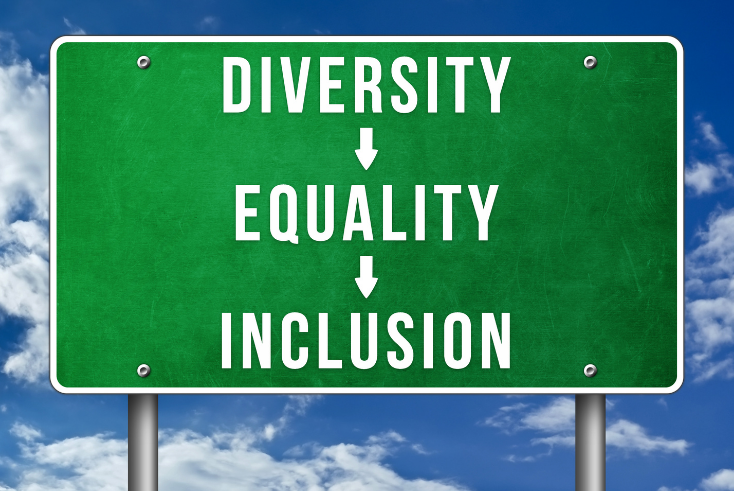Promoting the DE&I advantage

Partner content
Marie Friel, Bloomberg Media’s deputy head of sales, Europe introduces the company’s Equality initiative
Are you being paid enough? If you’re a woman working in the media business, the answer is likely to be “no”. If you’re someone of colour, you are probably not being paid as much as your peers either.
Thankfully, these uncomfortable truths are under the spotlight now more than ever, and Bloomberg is among those helping to ensure they stay there. You may have noticed how the pandemic’s dual hit of an economic downturn and a societal slowdown has resulted in some significant soul searching around systemic inequalities.
This is what led colleagues in Bloomberg News to build upon our Equality franchise in May 2021 – deepening our commitment to reporting on the crucial topics of race, gender, diversity, and fairness within governments, companies, and societies.
Bloomberg Equality aims to provide data, context, and local nuance on every topic from corporate leadership and capital, to society and solutions that show the promise of progress.
Many companies improved their DE&I practices in 2020 and 2021 — in fact, a recent survey of 42 large U.S. technology companies found that about two-thirds of companies made some kind of DE&I policy change after the summer 2020 protests.
For many employers, these policy changes included reconsidering how they recruit and hire diverse interns.
The business case for investing in DE&I is strong, and growing stronger, with the most diverse companies now outperforming their peers on profitability, according to McKinsey’s comprehensive Diversity Wins report.
It found that companies with the highest levels of gender diversity on executive teams were 25% more likely to have above-average profitability, rising to 36% when it comes to ethnic diversity, reaffirming the case for diversity in corporate leadership.
Diverse teams are found to be more innovative—stronger at anticipating shifts in consumer needs and consumption patterns that make new products and services possible, potentially generating a competitive edge.
The report concluded that if we act now to improve gender equity it could add $13 trillion to global GDP by 2030.
Progress is being made, but let’s not overlook how Covid-19 has had a disproportionate impact on the female workforce too.
According to McKinsey’s annual Women in the Workplace study, women’s jobs were found to be almost twice as vulnerable to the pandemic as men’s, with one in four considering leaving the workforce or downsizing compared to one in five men globally. We’ll find out in September how this sentiment impacted the workforce in the report’s next iteration.
We see similar trends in the UK ad industry, where the number of women employed full-time fell 12.8%, compared with 8.1% for men in the last IPA Agency Census.
Earlier this month, raising the issues of race, Bloomberg Media announced a multi-platform partnership with EBONY to create new solutions and inspire action around the biggest challenges facing the Black Community.
EBONY will feature an EBONY x Bloomberg Equality module on its homepage, linking to a dedicated page with news articles and video content such as Bloomberg Quicktake’s “Then This Happened” and “The Pay Check.”
EBONY and Bloomberg Equality will also cross-promote content on social media, and on every Thursday in Inside EBONY and the Bloomberg Equality newsletter.
Later this year, a special four-episode instalment of the Bloomberg Quicktake original video series MADE will spotlight the work of visionary Black artists, designers and creators, chosen in collaboration with EBONY.
Additionally, in November, Bloomberg Television will produce a one-hour special on the return of the annual EBONY Power 100, which honours the men and women who have made remarkable contributions in the Black community over the last year.
Bloomberg is committed to providing data that illustrates the inequities that most affect the community, alongside narratives that give the perspective of the people in them.
We continue to build upon our systems to measure the impact this is having on the business world with the Bloomberg Gender-Equality Index (GEI).
It tracks the performance of public companies committed to disclosing their efforts to support gender equality through policy development, representation and transparency.
As thoughts turn to post-pandemic recovery and building back better, now’s the time to take decisive action and help create a more inclusive and diverse workforce.
Stakeholders, including employees, investors and regulators, care more than ever about how companies treat their employees and whether their products and services are helping to serve the needs of society.
I can think of no better way to future-proof your business than investing in Diversity, Equality and Inclusion.
Bloomberg Equality Sizzle from Bloomberg Media Studios on Vimeo.
For more information on how you or your clients can get involved in the Bloomberg Equality franchise or consideration in the 2022 GEI Gender Equality Index (deadline 30 Sept) contact Marie Friel [email protected]




